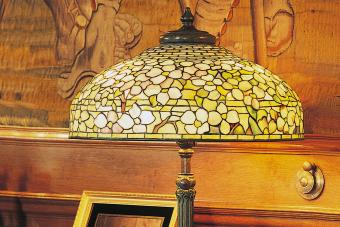
Collectible auctions are a fun and exciting way to add to your collection, whatever it may be. As long as you keep some simple rules in mind, you can hunt for rarities or bargains without having to deal with the all too common buyer's remorse over buying the wrong antique collectible or emptying your wallet more than you were planning to.
Finding Collectible Auctions
Conventions and Hobbyist Meetings
Almost all collectible conventions have either live or silent auctions, either to help pay the convention overhead costs, benefit a favorite charity or cause, or as a convenience for the collectors and dealers. Whatever the reason, you can have a great time chatting with other potential buyers and with the dealers or fellow collectors putting items up for auction. When buying at a convention collectible auction you don't have any more official protection than at any other auction, but you do have the advantage that auction sellers are usually part of the community and want to stay members. If a seller has too many complaints against them, either to the organizing group or simply through word of mouth, they won't get invited back. This is often a strong incentive for them to be honest in their dealings.
While it's not all that common, though, do be aware that sometimes the trickery might come from your fellow bidders. If somebody tells you all about how flawed, common, or otherwise not worth bidding on an item is, that person might be an expert doing you a favor or might be somebody who wants to discourage bidding so as to get the item for him or herself!
Newsletters, Websites, and Magazines
If your favorite collectible has a newsletter or magazine, check the advertisements and news sections for information about upcoming auctions. Websites usually list upcoming auctions as well.
Auction Precautions
- Set a budget before you go and stick to it. If you bid on eBay or other online auctions, set what you're really willing to spend as a maximum bid and then walk away. It is easy to get caught up in the "just a few dollars more" mentality if you're outbid, especially near the end of an auction. Then you just end up spending much more than you really want to or can afford.
- If you can, refer to or have a collectible price guide on hand so you can make sure that your bid is reasonable.
- Don't see a bidding war as a war of personalities. When you shop at an antique store, if you don't buy something you want it goes back on the shelf. At an auction, many find they inexplicably don't like the idea of somebody else getting the item they were bidding for. This turns into a situation where if the other person wins, they lose. When an item gets out of your range, try to consider instead that it's truly going to somebody who will value it.
- Another psychological disadvantage at a collectible auction or an antique auction is that during the bidding, you don't have time to think it over the way that you do in a store. That's one reason auctioneers at physical auctions keep a patter up: It distracts you from being able to stop and rethink whether you really have room for another piece of Civil War gear or need another I Love Lucy memorabilia item.







